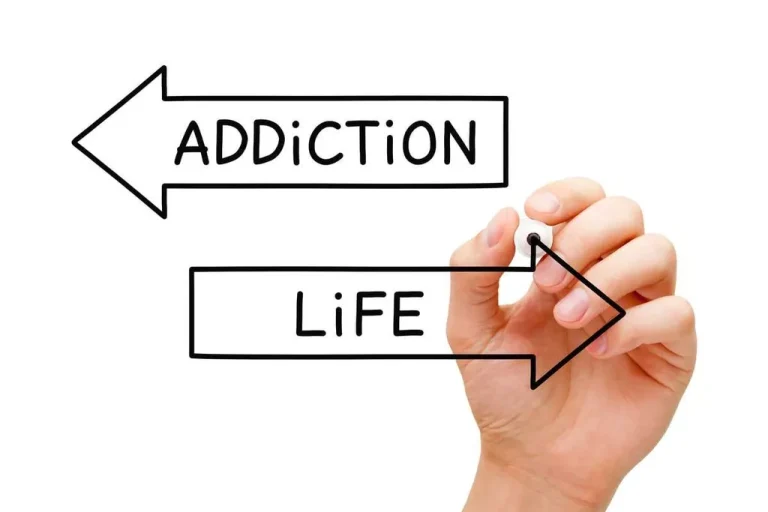
Or, they could create additive side effects such as heightened drowsiness or an increased risk of gastrointestinal bleeding, says Moore. If you’re taking any medication, be sure to read the package label and insert carefully—and/or talk to your doctor—to see if you should abstain from drinking alcohol altogether. With almost the same amount of calories as pure fat, drinking alcohol can mean you put on weight.1 And if you’re putting on weight overall, it can show as a ‘beer belly’.
Makes It Harder To Get Quality Sleep
- Cortisol plays an important role in helping to regulate blood sugar and fight inflammation in the body.
- Not taking into account some of these potential confounding factors can certainly lead to biased estimates of the relationship between alcohol intake and body weight given that large inter-individual variations exist.
- More research is needed to fully understand how much alcohol may affect weight and why it may do this.
- People continue to make poor food choices the day after passing their tipping point, with an average additional intake of 2,051 calories, taking the estimated additional calorie intake to over 6,000 in two days.
- A summary of the studies examined in this article, organized by the trend between alcohol and weight gain/obesity can be found in Table 1.
To put this into perspective, let’s compare these drinks to some common foods. A small apple has about 80 calories, a slice of bread around 70, and a chocolate chip cookie about 150. A single glass of wine has about 125 calories, a pint of beer around 200, and a cocktail? Well, depending on what’s in it, you could be sipping down 300 calories or more. The body can only metabolize a certain amount of alcohol every hour. How much alcohol you’re able to metabolize is dependent on your age, weight, sex, and other factors.
Bottom Line on Alcohol and Weight Gain
“Excessive alcohol consumption can cause nerve damage and irreversible forms of dementia,” Dr. Sengupta warns. Your liver detoxifies and removes alcohol from your blood through a process known as oxidation. When your liver finishes that process, alcohol gets turned into water and carbon dioxide.
- Some evidence suggests that people may seek high-carb foods to satisfy their cravings if their blood sugar dips slightly.
- While recent research on humans is limited, past studies have suggested that different hunger-related hormones, like ghrelin and leptin, might be affected by alcohol consumption.
- While the calories in one glass of wine don’t seem like a lot, a few glasses pack over 300 calories and a bottle has upwards of 600 calories.
- But once we’ve had a cocktail, we might be inclined to go for a deep-fried appetizer instead of vegetables.
- According to two studies published in 2021, a high intake of alcohol may increase food cravings.
- The association between alcohol intake and body weight is generally stronger in men than women [15], especially because of the amount and type of alcohol consumed by men.
How Much Alcohol Makes You Gain Weight?
If you’re feeling bloated while drinking alcohol, switch over to drinking water. All kinds of alcohol — beer, wine, whiskey, you name it — are relatively calorie-dense, topping out at about 7 calories per gram. Add other ingredients to alcohol — like sugar — and the calorie count increases even more. Women who participated in binge drinking were not only more likely to have obesity, but were also more likely to be attempting weight loss. Since the liver plays a large role in processing alcohol, heavy alcohol intake can lead to the accumulation of fat inside your liver and may eventually cause chronic liver scarring and damage known as cirrhosis (16).
RELATED: 5 Trainers Share Their #1 Tip For Clients Trying To Lose 10 Pounds
Thus, accounting for both sides of the energy balance equation (intake, expenditure and lifestyle habits) is crucial to evaluate adequately the association between alcohol intake and obesity. Not taking into account some of these potential confounding factors can certainly lead to biased estimates of the relationship between alcohol intake and body weight given https://ecosoberhouse.com/article/how-to-naturally-reduce-alcohol-cravings/ that large inter-individual variations exist. Although it’s tempting to think that the calories from alcohol intake will result in excess body weight, telling your patients that moderate drinking may pack on the pounds is inaccurate based on the extant data. Instead, there appears to be no clear association between weight gain and drinking in moderation.
“If somebody is getting hungover the next day, the chances of them waking up and having a healthy lifestyle [are slim],” Simon says. “If you’re trying to lose weight, what you really want to happen is you want fat burning to be turned on as much as possible,” Wyatt says. The calories in alcohol are “empty,” meaning they contain little to no beneficial nutrients or minerals. Alcoholic beverages are often high in empty calories, with about seven per gram. For example, your adrenal glands, found on top of your kidneys, secrete cortisol, a stress hormone. Usually, cortisol helps your body respond to stress by increasing blood pressure and heart rate.
- They can contain up to two standard drinks worth of alcohol, doubling the calories from alcohol you’d get in a single shot.
- Talk with a doctor if you’re finding it hard to limit your alcohol intake or if you have questions.
- While cutting alcohol completely out of your diet isn’t necessarily the only way to lose weight, there are many improvements that can be made in your health journey by simply cutting back on the booze.
- If you want a happier, more stable life, one of the BEST things you can do for yourself is quit drinking alcohol.
- Cirrhosis, on the other hand, is irreversible and can lead to liver failure and liver cancer, even if you abstain from alcohol.
What Does Alcohol Do to Your Body? 9 Ways Alcohol Affects Your Health

Bloating is one of the most common effects drinking alcohol can have on the body. What’s more, calories from alcohol are typically considered empty calories, since most alcoholic drinks do not provide substantial amounts of vitamins, minerals, or other nutrients. It’s common to enjoy a glass of wine as you catch up with friends or unwind after a long day, but you may wonder whether drinking too much wine can cause you to gain weight. A lack of sleep, or poor quality of sleep, increases your appetite and cravings for junk food rich in refined carbohydrates and decreases your energy expenditure on the following day. Therefore, alcohol consumption within the government guidelines of up to 14 units per week for men and women can provide almost 3,000 extra calories per week if choosing the highest calorie option. When people discuss alcohol’s effect on weight, they typically refer to the calories in alcohol as the leading cause of weight gain.
Is High in Empty Calories
Having too many drinks in one occasion means you’ll be ingesting hundreds of extra calories, if not thousands. Alcohol also lowers testosterone levels which greatly slows your body’s ability to burn fat while at rest, further contributing does liquor make u gain weight to weight gain. But calorie content is just the beginning of your alcohol-induced weight gain journey. Think again if you can circumvent this problem by drinking “skinny” margaritas or clear liquor with soda water.